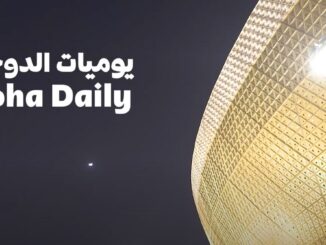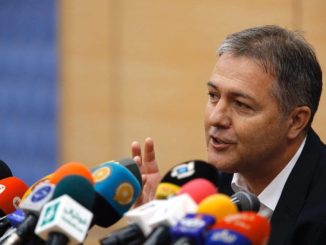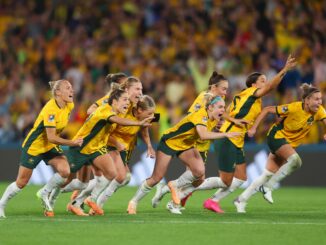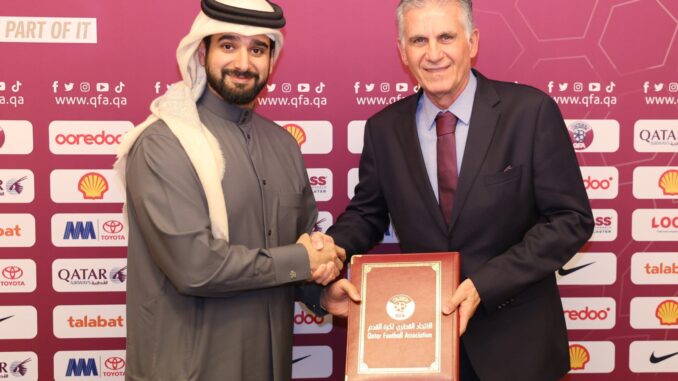
The long-awaited news that Carlos Queiroz will become Qatar national team coach was confirmed on Monday.
The Portuguese pragmatist, who left Iran at the turn of the year, has signed a three-and-a-half-year contract with the upcoming Asian Cup hosts and holders, as Al-Annabi look to rebuild following a drab debut World Cup showing.
The appointment puts to bed any concerns that the Qatari Football Association (QFA) would desert their backing of the national team following November’s dismal showing.
A decade in the making, the 2022 World Cup required significant resourcing both on and off the pitch. With no such guarantees ahead, there was a worry that investment would find itself apportioned elsewhere.
Instead, they’ve acquired arguably the most sought-after national team coach in Asia over the last decade.
A five-time World Cup manager, with South Africa, Portugal and Iran (three times), his experience is undeniable; something that will no doubt be met by a lofty salary to boot.
The manner in which he concluded his time with Iran, however, added to his perceived shortcomings at Colombia and Egypt, in his two previous stints, linger moving forward as he takes the reins of a very different type of footballing nation.
The triumphant return that never was
Queiroz’s return to the Iran job last summer was from the outset steeped in nostalgia. Dragan Skocic, the man who had resurrected their World Cup qualification campaign, following the misjudged appointment of Marc Wilmots, had evolved a team built in the Portuguese coach’s vision.
From a stern, defensive and counter-attacking setup, to one that complemented and supported the blossoming offensive talent they had produced over the last few years, the Croat had started to change perceptions of Iran heading into Qatar.
Skocic’s reign was ultimately cut short due to personal conflicts within the camp, political signalling, and a fear of heading to the World Cup without an experienced coach in the dugout.
The courting, and subsequent acquisition of Queiroz resolved those issues immediately; the players idolised him, the IFF, choosing to forget their run-ins with him in the past, knew it would broadly capture favour, and in terms of experience, he’d be one of the most assured coaches in Qatar.
They say “never go back” for a reason, however.
In 2019, Queiroz had moved on, and so had Team Melli. His swift reversion to a defensive, low block with little counter options looked antiquated and out of touch in their World Cup opener against England; and while they resurrected some hope in their victory over Wales, Queiroz once again looked tactically naïve against a modern day, fit and firing United States in their final group stage encounter.
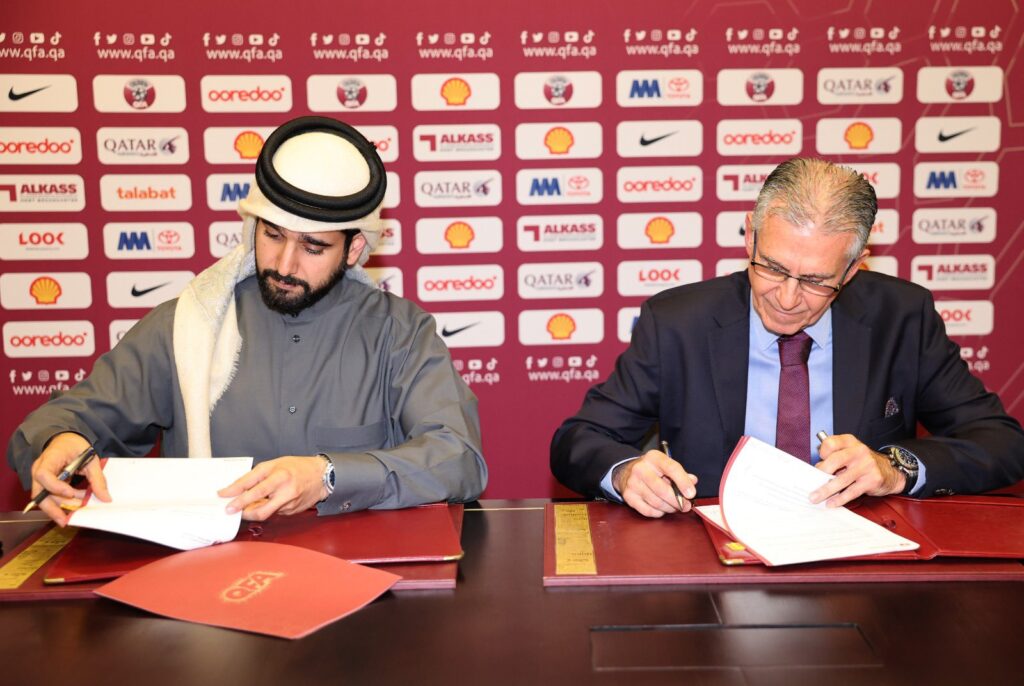
His usual psychological tactics didn’t work either. Rather than create a united rebuttal against the outside, the IFF, the confederation, western perceptions, etc; he found himself in more hot water caught between the government and a divided dressing room amidst the admittedly difficult Iranian protest movement.
For a coach who excels with his back against the wall, in thriving to deliver for a nation who started with nothing, aiming to push their boundaries, an immediate move to Qatar – a nation with everything, a growing influence in Asia, an Asian Cup title to retain, yet arguably a modest playing squad – seems to strike a direct contrast to the environment Queiroz tends to thrive in.
The almost meme-able recurring dream of Queiroz’s first spell in charge of Iran, rekindles his countless run-ins with the IFF; fighting for every friendly opportunity, every national team call up. In a climate where he’ll get his heart’s desire on a plate month after month, where does he now find that edge?
Question marks
The other intriguing factor is the tactical and stylistic evolution which is looming ahead for Qatar.
A team with a well defined identity for over a decade now, the very reason why former coach Felix Sanchez stayed so long, was due to his loyalty and fixation for an approach that was once so successful it clinched their first Asian Cup title in 2019.
With a new coach at the helm, with significantly different ideas, do they throw the towel in on everything that brought them success previously?
In Iran, at least back in 2011, a siege mentality both on and off the pitch was warranted. The talent base wasn’t as developed as the elite in Asia at the time, the circumstances from outside bled into their way of play – like a hound dog with a point to prove.
On his return to Team Melli on the run up to 2022, his side was much deeper in terms of options, more experienced, and reassuringly potent in possession. Queiroz’s failure to embrace a newer feel felt like a missed opportunity at the World Cup.
His new employers sit in a very different situation; playing stocks are much shallower, but the support infrastructure is the best around. Queiroz will be afforded, the same way Sanchez was previously, access to his national team players on a regular basis to build a foundation quickly but he won’t have much to play with.
How Queiroz will settle on a core to build this side around will be interesting then. Over the last five years, Qatar have thrived in possession, with their tail up in attack, and in exploiting space.
At the World Cup, however, up against significantly raised expectations and a high standard of opposition, they shrunk within themselves, squirming in an uncomfortable deep lying assembly.
Sanchez always engineered his team to play with the ball, rather than against the opponent, from the defensive line forward.
As was so plainly obvious in November, Qatar lack any real physical, experienced leader-type defenders, even less so given Abdelkarim Hassan’s recent suspension.
The defensive stock instead, consisting of the likes of Pedro Correia, Bassam Al-Rawi and Tarek Salman, are short, slight, and technical; hardly those you’d build a deep, rear-guard formation around.
Embed from Getty ImagesQatar’s next generation, what you could very easily end up seeing referred to as the “forgotten generation”, that comes through post-2022, for now doesn’t look to throw up many further options either.
Jassem Gaber, following a decent showing in January’s Gulf Cup, probably indicates the most suitable option moving forward; but at 20 years of age it feels early days to pin any hopes on him leading Qatar’s defence into the next cycle.
Further forward, while Qatar were asked to play on the break a lot at the World Cup, success in doing so wasn’t forthcoming.
The high hopes placed on the shoulders of Almoez Ali and Akram Afif rarely materialised. With Hassan Al-Haydos, one of the only remaining creators in the squad, likely to wind down his time in Maroon in the coming four years; the prospect of a deep block, with an isolated pairing in attack doesn’t exactly inspire optimism.
Long term priorities
What Queiroz is given in his full cycle contract, however, is time and opportunity; crucially the factor he longed for most in charge of Team Melli.
Ahead of a new World Cup qualification campaign, Qatar will be heading Stateside for the North American Gold Cup in July, before a home Asian Cup in little under a year’s time.
With two significant and visible tournaments to come in the next twelve months, it does throw up an interesting question of ambition – of the QFA and Queiroz himself?
Following a disastrous World Cup, does the coach prioritise the next twelve months to re-harness and retain the Asian Cup they won four years ago, or make the necessary but difficult long-term changes required to regenerate a squad that is capable of returning to the World Cup in 2026.
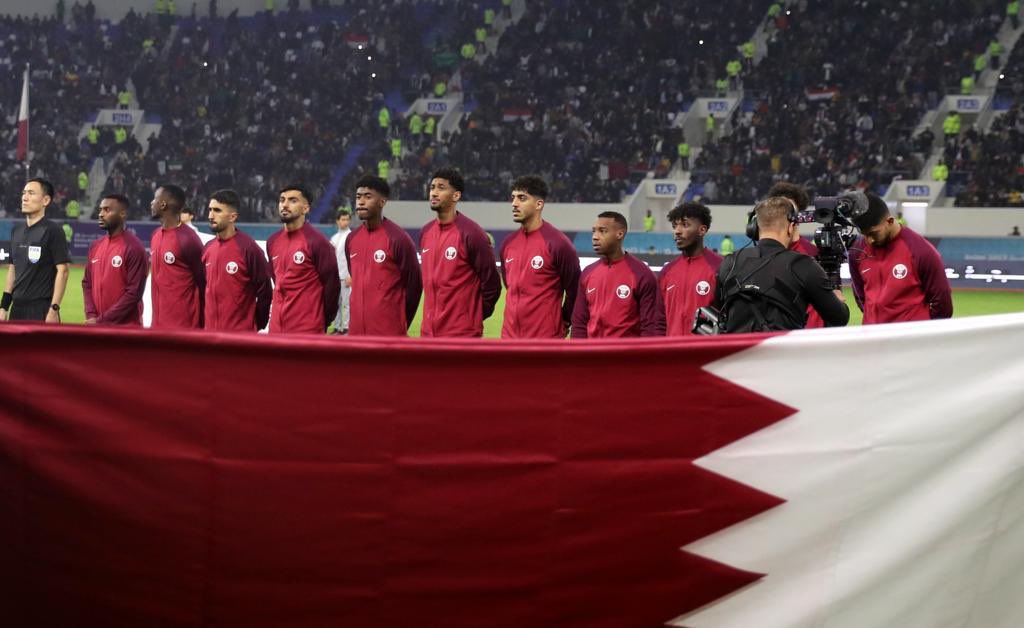
As Asian champions, and with World Cup expansion on the horizon, the QFA will undoubtedly suggest both ambitions can feasibly be achieved, but Queiroz feels like a coach that can’t fit both briefs.
The comparisons with UAE, following their dismissal of Mehdi Ali in 2017, feel all too similar. A golden generation of players brought through in a set philosophy and narrowly defined environment – evaporating under a new regime, with an overreliance on individual form over long-term strategy.
In a simplistic way, handing over the current Asian champions, with an abundance of support, to arguably the best coach in Asia over the last decade, who has been restricted of such levels of assistance before, seems like a recipe for success.
In truth, this is the coming together of two parts off course, with a difficult path ahead. Following a decade of one manager, odds for his successor to stay for more than a year must be quite high.
Photo: QFA
Listen to The Asian Game Podcast as we go In Conversation With… Mitch Langerak


